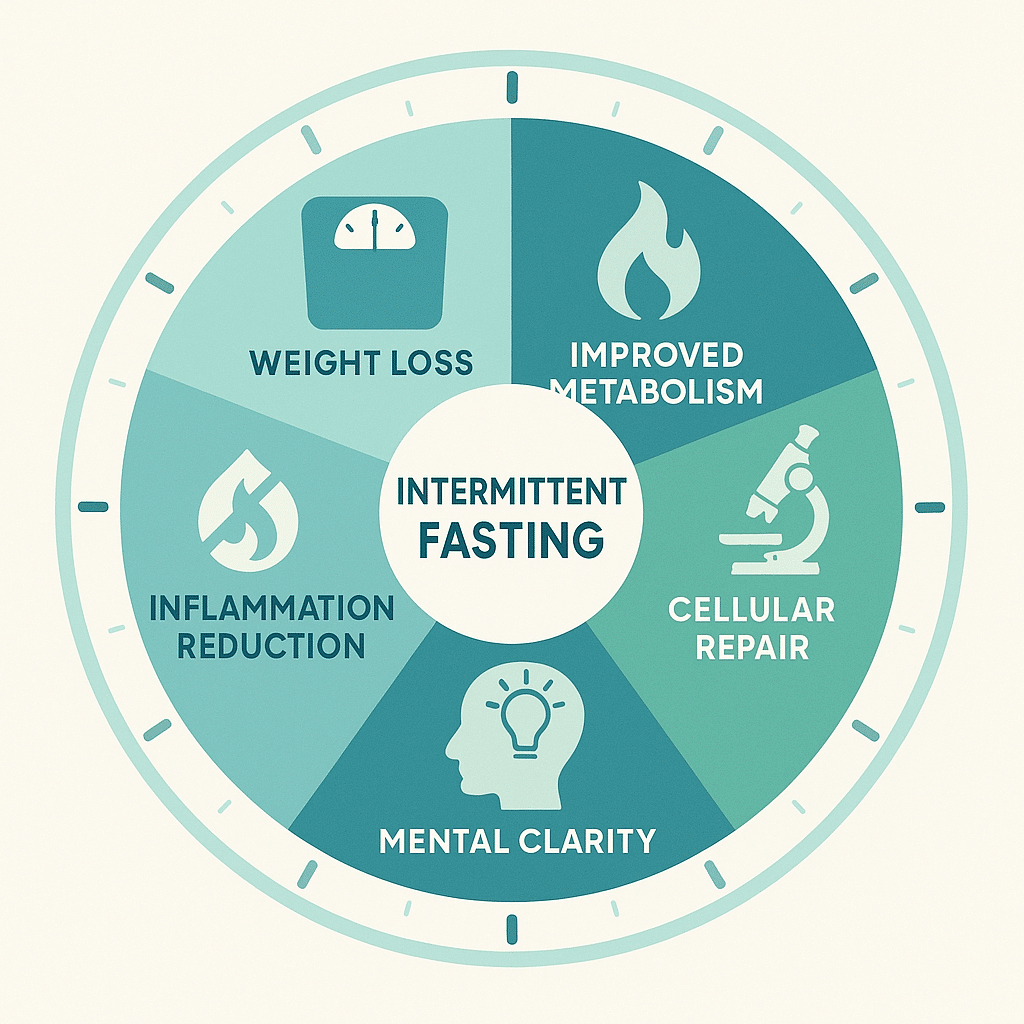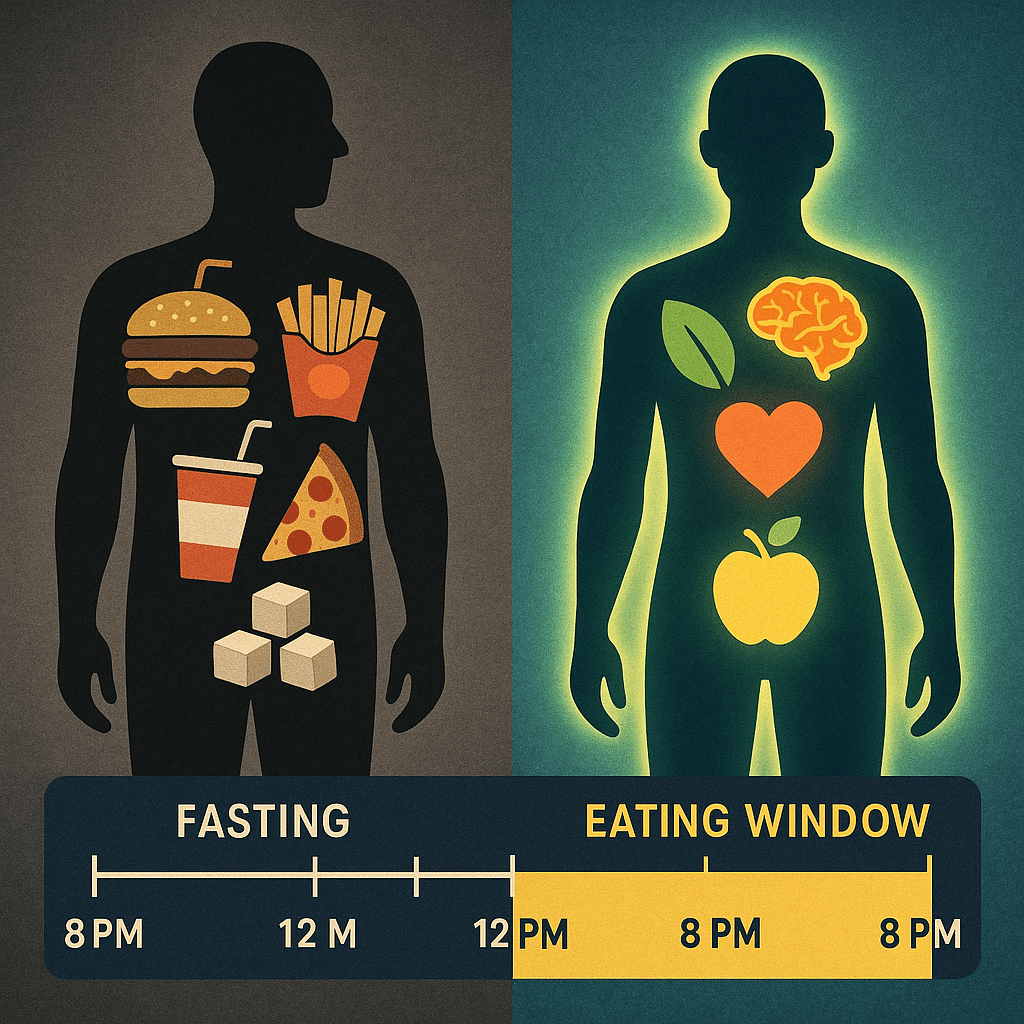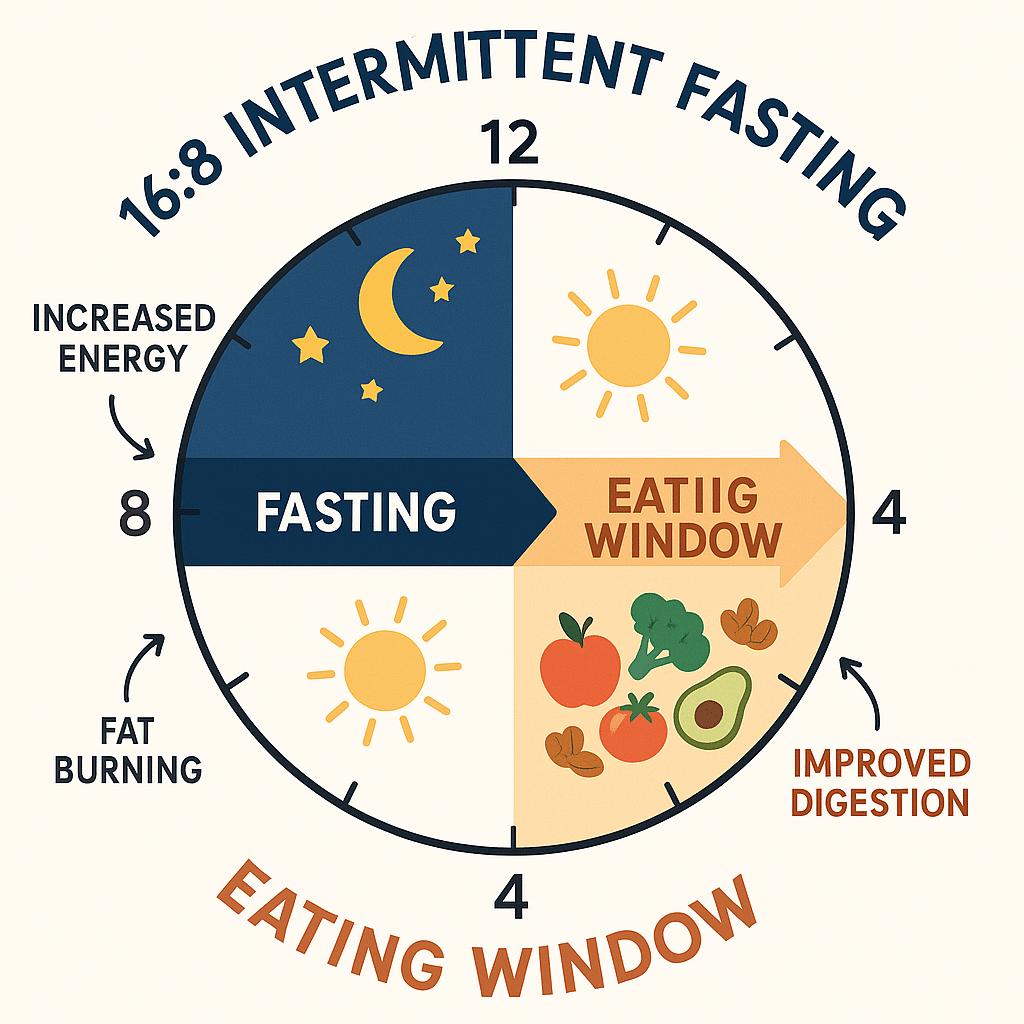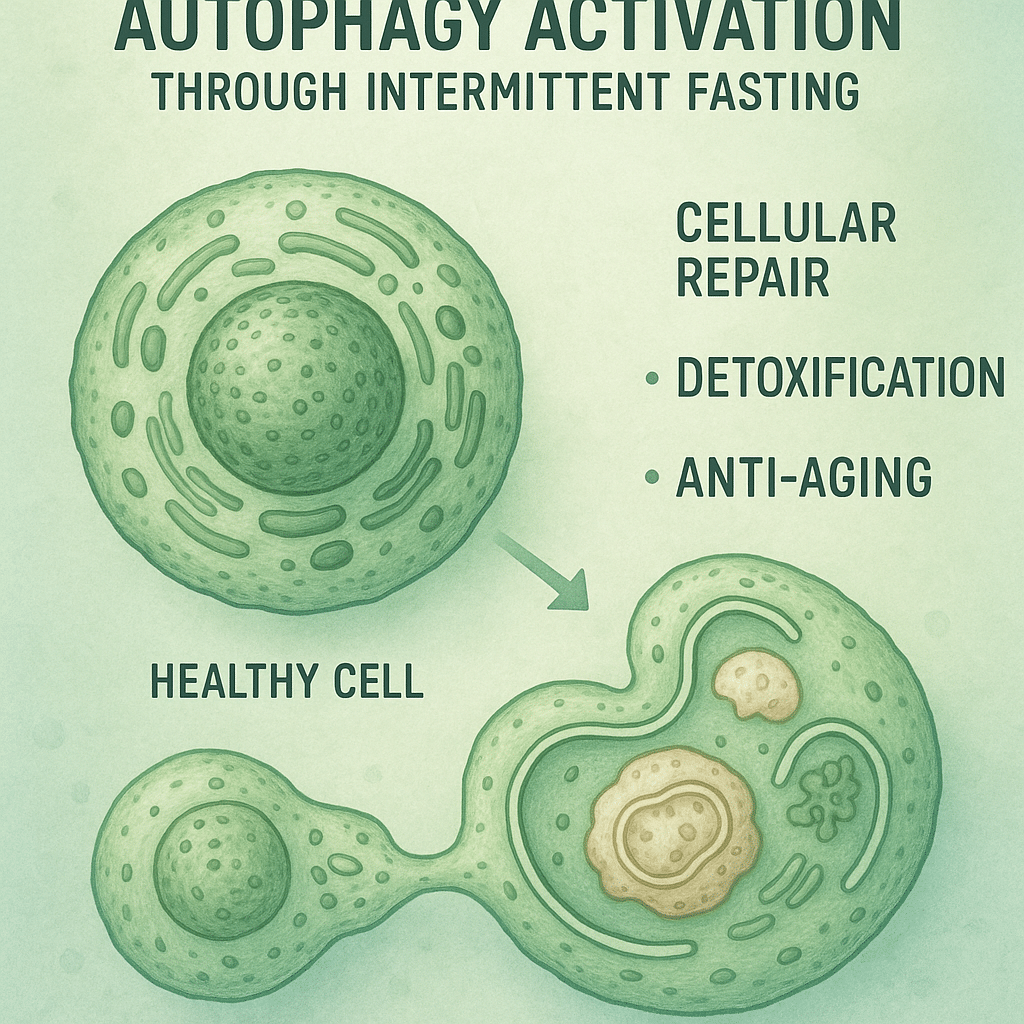Intermittent fasting has emerged as a popular and effective approach to improving health and well-being naturally. As a health-conscious adult seeking natural wellness, you might be curious about how intermittent fasting can support your body and mind without relying on medications or complicated diets. In this comprehensive article, I will walk you through 15 proven benefits of intermittent fasting that can help enhance your metabolic health, weight management, cellular repair, brain function, hormonal balance, longevity, and psychological well-being. You’ll also get practical insights into popular fasting methods, safety considerations, and how combining mindful eating with fasting can maximize your results.
By exploring both the scientific evidence and practical experiences behind intermittent fasting, you’ll learn why this flexible lifestyle strategy is gaining recognition as a powerful tool for natural wellness. So, whether you are looking to boost your metabolism, sharpen your cognitive performance, or improve your overall vitality, this article is your expert guide to the many rewards intermittent fasting can offer. Let’s dive in and uncover how the benefits of intermittent fasting can change your health journey for the better.
Understanding Intermittent Fasting: Key Concepts and Methods

What is Intermittent Fasting?
Intermittent fasting (IF) is a dietary pattern that cycles between periods of eating and fasting. Unlike traditional diets that focus on what to eat, intermittent fasting emphasizes when to eat. During fasting periods, you either abstain from food altogether or significantly reduce calorie intake, allowing the body to tap into its stored energy.
People of all ages have practiced forms of fasting for centuries, embracing it for spiritual, cultural, or health reasons. Today, modern science explains how these fasting periods stimulate various biological processes that promote natural wellness and longevity.
Popular Intermittent Fasting Protocols (16:8, 5:2, Alternate-Day Fasting)
There isn’t a one-size-fits-all approach when it comes to intermittent fasting—various protocols are available depending on your goals and lifestyle:
- 16:8 Method: Fast for 16 hours daily and eat all meals within an 8-hour window. For example, eating between noon and 8 p.m., then fasting overnight and through the morning.
- 5:2 Fasting: Consume a typical diet 5 days a week, then restrict calorie intake to about 500–600 calories on the other 2 non-consecutive days.
- Alternate-Day Fasting: Alternate between normal eating days and complete or partial fasting days, usually with zero or minimal calorie intake on fasting days.
Each method supports metabolic switching and can be tailored as you become more comfortable with fasting.
The Science Behind Metabolic Switching in Fasting
When you fast, your body undergoes a shift known as metabolic switching. After depleting immediate glucose stores from recent meals, your metabolism turns to fat as its primary energy source. This process releases ketones—molecules derived from fat breakdown—that serve as fuel, especially for the brain.
Metabolic switching enhances fat burning, improves insulin sensitivity, and triggers cellular repair mechanisms such as autophagy. This switch not only aids in weight loss but also sets the stage for many of the health benefits that intermittent fasting delivers.
Metabolic Health Benefits of Intermittent Fasting

Enhanced Insulin Sensitivity and Blood Sugar Regulation
One of the standout metabolic benefits of intermittent fasting is its ability to improve insulin sensitivity. Insulin is the hormone responsible for regulating blood sugar levels, and insulin resistance is a common precursor to type 2 diabetes and metabolic syndrome.
Studies show that time-restricted eating and other fasting methods can reduce fasting blood glucose and insulin levels, improving your body’s efficiency in managing sugar. For example, intermittent fasting benefits for type 2 diabetes management have been documented to lower insulin resistance and support better blood sugar control.
This improved insulin sensitivity not only protects against diabetes but also reduces inflammation and energy fluctuations throughout the day.
Improved Lipid Profile and Cardiovascular Health
Intermittent fasting also positively influences your lipid profile, including decreasing total cholesterol, LDL (“bad” cholesterol), and triglycerides—all of which are risk factors for cardiovascular disease.
Additionally, how intermittent fasting improves heart health extends to better markers of vascular function and inflammation. Reduced oxidative stress and improved endothelial function help keep your arteries flexible and reduce the risk of atherosclerosis.
Research supports that intermittent fasting may decrease heart rate and blood pressure, further contributing to cardiovascular wellness—a huge win for natural heart health support.
Role of Intermittent Fasting in Blood Pressure Control
High blood pressure is a silent threat that greatly increases the risk of heart attack and stroke. Intermittent fasting activates hormonal pathways that influence the nervous system, promote sodium balance, and reduce oxidative stress, all of which play roles in blood pressure regulation.
Clinical studies consistently demonstrate modest but meaningful drops in both systolic and diastolic blood pressure following periods of intermittent fasting. When combined with a wholesome diet, fasting helps maintain healthy blood pressure naturally.
Intermittent Fasting and Weight Management

Fat Loss While Preserving Muscle Mass
For many health-conscious adults, the intermittent fasting benefits for weight loss are incredibly appealing. Fasting helps reduce overall calorie intake while enhancing fat burning, particularly around the abdominal area, which is linked to metabolic disease.
Unlike some weight loss methods that cause muscle loss, intermittent fasting paired with adequate protein intake helps preserve muscle mass. The fasting-induced spike in growth hormone secretion plays a crucial role here by supporting muscle retention and promoting fat breakdown.
The result? Leaner body composition with better metabolic health.
Impact on Growth Hormone Secretion and Metabolic Rate
Growth hormone, often called the “fitness hormone,” surges during fasting periods. Elevated growth hormone supports tissue repair, fat metabolism, and muscle maintenance.
Moreover, intermittent fasting can help maintain or even increase your metabolic rate by optimizing hormone levels and promoting metabolic flexibility. This contrasts with some calorie-restrictive diets where metabolic slowdown is common.
By boosting your resting energy expenditure, intermittent fasting helps you burn more calories even at rest, supporting natural weight management.
Cellular and Molecular Benefits

Autophagy: Cellular Repair and Detoxification Processes
One of the most fascinating benefits of intermittent fasting lies deep within your cells through a process known as autophagy. This natural “self-cleaning” mechanism involves breaking down and recycling damaged or dysfunctional cellular components.
Autophagy enhances cellular repair, detoxification, and renewal. Regular fasting stimulates this process, which may protect against aging-related diseases, improve immune function, and support general cellular health.
This detoxification at a microscopic level is a key reason fasting is highly regarded for natural wellness and longevity.
Reducing Chronic Inflammation Through Fasting
Chronic inflammation underpins many health issues—from arthritis to heart disease and neurodegeneration. Intermittent fasting decreases levels of inflammatory markers like C-reactive protein and TNF-alpha, helping calm systemic inflammation.
By modulating immune responses and reducing oxidative stress, fasting promotes a healthier environment within your body, reducing the risk of chronic diseases and enhancing overall vitality.
Brain Health and Cognitive Enhancements

Neuroprotective Effects and Prevention of Neurodegenerative Diseases
Emerging evidence reveals that intermittent fasting exerts powerful neuroprotective effects. The ketones produced during fasting serve as alternative brain fuel that may enhance mitochondrial function and reduce oxidative damage.
Intermittent fasting has been linked to a lower risk of neurodegenerative diseases such as Alzheimer’s and Parkinson’s by boosting production of brain-derived neurotrophic factor (BDNF), a protein essential for brain cell survival and cognitive resilience.
This makes intermittent fasting a potent strategy for natural brain health support over the lifespan.
Improved Cognitive Function and Memory Performance
Many people report enhanced mental clarity, focus, and memory while practicing intermittent fasting. Scientific studies confirm improved cognitive function including better learning, memory retention, and executive function.
Fasting triggers improved synaptic plasticity and reduces neuroinflammation—both critical for optimal brain function. Whether you’re at work, school, or enjoying leisure activities, intermittent fasting can help keep your mind sharp.
Hormonal and Circadian Rhythm Regulation
How Fasting Supports Hormonal Balance in Adults
Intermittent fasting positively influences several key hormones beyond insulin and growth hormone. For instance, it supports balanced cortisol (the stress hormone), promotes more stable ghrelin and leptin levels (hunger and satiety hormones), and enhances thyroid function.
This hormonal harmony can lead to better energy levels, mood stabilization, and improved metabolic health, addressing root causes of many common health struggles.
Alignment of Circadian Rhythms to Enhance Overall Health
Your body follows natural biological cycles called circadian rhythms that regulate sleep, digestion, hormone release, and more. Intermittent fasting, especially when timed with daylight hours, can reinforce these rhythms, improving sleep quality, digestion, and metabolic efficiency.
Benefits of time-restricted eating for metabolic health highlight how syncing eating windows with your internal clock optimizes—not only weight and glucose control—but overall vitality.
Longevity and Aging
Evidence Linking Intermittent Fasting to Increased Lifespan
Animal studies have demonstrated that intermittent fasting can extend lifespan and slow the biological aging process. While human data is still evolving, the underlying mechanisms—reduced oxidative stress, enhanced autophagy, and improved metabolic health—support the potential for increased longevity.
By promoting cellular repair and reducing chronic disease burden, intermittent fasting offers a promising route to healthier, longer lives.
Delaying Age-Related Diseases Through Natural Wellness Mechanisms
Age-related diseases such as cardiovascular disease, diabetes, and neurodegeneration often stem from metabolic dysfunction and inflammation. Intermittent fasting’s ability to regulate blood sugar, lower inflammation, and enhance cellular renewal means it could delay or reduce the severity of these conditions naturally.
This approach aligns perfectly with a health-conscious adult’s desire for sustainable, natural wellness practices.
Psychological and Behavioral Benefits
Improved Mood, Focus, and Energy Levels During Fasting
Many people experience elevated mood and mental energy when fasting. This may be due to hormonal balance, stabilized blood sugar, and ketones improving brain energy metabolism.
Fasting can also reduce stress-induced eating and emotional eating habits, helping you adopt a more mindful and balanced relationship with food.
Simplicity and Flexibility: Making Healthy Eating Sustainable
One of the often-overlooked benefits of intermittent fasting is its simplicity. Without complex meal plans or calorie counting, many find IF easier to stick with long-term. The flexibility to choose your fasting schedule empowers sustainable lifestyle changes.
Choosing an approach that fits your natural routine supports long-lasting natural wellness improvements.
Safety, Side Effects, and Best Practices for Adults
Common Side Effects and How to Mitigate Them
Initial side effects of intermittent fasting can include hunger, headaches, irritability, and fatigue. These usually subside after a few days to weeks as your body adapts.
To ease the transition, stay well hydrated, consume nutrient-dense meals, and consider easing into fasting gradually.
Who Should Avoid Intermittent Fasting?
Certain groups should avoid or consult a healthcare professional before starting intermittent fasting, including pregnant or breastfeeding women, children, individuals with a history of eating disorders, or those with specific medical conditions like diabetes requiring medication.
Combining Intermittent Fasting with Balanced Nutrition
Fasting is most effective when paired with a balanced diet rich in whole foods, healthy fats, lean proteins, and plenty of vegetables. A nutrient-rich diet supports the restorative benefits of fasting and ensures you meet essential vitamin and mineral needs.
Unique Insight: The Synergy Between Intermittent Fasting and Mindful Eating to Enhance Natural Wellness
How Mindfulness Amplifies the Benefits of Intermittent Fasting
Mindful eating—paying full attention to food choices, hunger cues, and eating experiences—naturally complements intermittent fasting. This combined approach can amplify benefits by preventing overeating, improving digestion, and enhancing satisfaction with meals.
Mindfulness helps you reconnect with your body’s natural rhythms, making fasting a holistic lifestyle rather than a rigid diet.
Practical Tips to Integrate Mindful Eating with Fasting Schedules
- Break your fast slowly with nourishing, gentle foods.
- Chew thoroughly and savor each bite to promote digestion.
- Tune in to hunger and fullness signals to avoid overeating.
- Use fasting windows as an opportunity to reflect on your relationship with food.
Together, mindful eating and intermittent fasting foster greater awareness and support your health goals naturally.
Quick Takeaways
- Intermittent fasting enhances metabolic health by improving insulin sensitivity and supporting blood sugar regulation.
- It benefits cardiovascular health by improving lipid profiles and aiding blood pressure control.
- Supports fat loss while preserving muscle through increased growth hormone secretion and metabolic rate.
- Stimulates autophagy, promoting cellular repair and reducing chronic inflammation.
- Boosts brain health by improving cognitive function and providing neuroprotective effects.
- Helps regulate hormones and circadian rhythms, enhancing overall wellness.
- May increase longevity and delay age-related diseases.
- Improves psychological well-being by enhancing mood, focus, and energy.
- Offers a simple and sustainable approach to healthy eating.
- Combining intermittent fasting with mindful eating intensifies its benefits for natural wellness.
Frequently Asked Questions (FAQs)
1. What are the main health benefits of intermittent fasting for adults?
Intermittent fasting offers metabolic benefits such as improved insulin sensitivity, weight loss with muscle preservation, cardiovascular support, reduced inflammation, and enhanced brain function—making it a powerful natural wellness strategy for adults.
2. How can intermittent fasting benefit weight loss without losing muscle?
By increasing growth hormone secretion and promoting metabolic switching, intermittent fasting supports fat burning while preserving muscle mass, especially when combined with adequate protein intake.
3. Is intermittent fasting safe for managing type 2 diabetes?
Intermittent fasting benefits for type 2 diabetes management include improved insulin sensitivity and blood sugar control. However, it should be done under medical supervision, particularly if taking medication.
4. How does intermittent fasting help improve heart health?
Intermittent fasting improves lipid profiles, lowers blood pressure, and reduces inflammation, all contributing to better cardiovascular health and reduced risk of heart disease.
5. Can intermittent fasting improve brain function and prevent neurodegenerative diseases?
Yes, intermittent fasting enhances cognitive function and produces neuroprotective molecules like BDNF, which may help delay or prevent diseases such as Alzheimer’s and Parkinson’s.
Conclusion
Exploring the benefits of intermittent fasting reveals a multitude of pathways that support natural wellness for health-conscious adults like you. From metabolic and cardiovascular enhancements to cellular repair, brain health, and hormonal balance, intermittent fasting provides a comprehensive approach to health rooted in ancient practice and modern science.
By adopting intermittent fasting, you can unlock improved insulin sensitivity, fat loss with muscle retention, reduced inflammation, sharper cognition, and potentially longer, healthier years. Combining this with mindful eating allows you to nurture a deeper connection with your body, making healthful changes sustainable and enjoyable.
If you’re ready to embrace a science-backed, flexible, and natural method to boost your vitality, intermittent fasting is a fantastic place to start. Remember to consult your healthcare provider to tailor your fasting journey safely. Here’s to your natural wellness and lifelong health!
For more detailed guides on intermittent fasting protocols and health benefits, visit Healthline and check out quality supplements and resources at Thorne Research.

